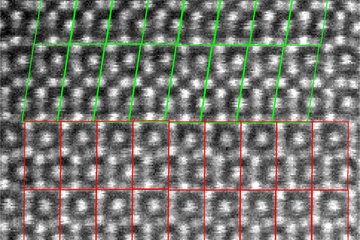All genres
2361.
Thesis
Untersuchung des Einflusses definierter Schmierverhältnisse am Beispiel des Flachstauchversuches. TU, Clausthal, Germany (2002)
2362.
Thesis - PhD
Critical factors for bearing failures by localized severe plastic deformation. Dissertation, RWTH Aachen, Germany (2022)
2363.
Thesis - PhD
Advancing the understanding of the microstructure-property relationship in non-toxic and cost-effective thermoelectric Heusler compounds. Dissertation, Fakultät für Georessourcen und Materialtechnik der RWTH Aachen, Germany (2022)
2364.
Thesis - PhD
Influence of Processing Parameters, Crystallography and Chemistry of Defects on the Microstructure and Texture Evolution in Grain-Oriented Electrical Steels. Dissertation, RWTH Aachen, Germany (2022)
2365.
Thesis - PhD
Grain boundary segregation of boron and carbon and their local chemical effects on the phase transformations in steels. Dissertation, Faculty of Georesources and Materials Engineering of the RWTH Aachen, Germany (2021)
2366.
Thesis - PhD
Design of Invar and Magnetic High-Entropy Alloys. Dissertation, RWTH Aachen University (2021)
2367.
Thesis - PhD
Fundamentals of carbide decomposition and stability. Dissertation, Ruhr-Universität Bochum (2021)
2368.
Thesis - PhD
Engineering Impurities in Colloidal Nanostructures used in ‘Green Hydrogen’ Generation. Dissertation, RWTH Aachen University (2021)
2369.
Thesis - PhD
Crossover-alloys – a new approach for future aluminum alloys. Dissertation, University Leoben, Austria (2021)
2370.
Thesis - PhD
Microstructural characterization of white etching cracks in 100Cr6 bearing steel with emphasis on the role of carbon. Dissertation, RWTH Aachen University (2021)
2371.
Thesis - PhD
Machine learning methods in data-driven nanostructure analysis of materials. Dissertation, RWTH Aachen University (2021)
2372.
Thesis - PhD
Advancements in the understanding of Ir-based water splitting catalysts at the near-atomic scale. Dissertation, Ruhr-Universität Bochum (2021)
2373.
Thesis - PhD
Mechanisms of refinement and deformation of novel ultrafine-grained medium manganese steels with improved mechanical properties. Dissertation, Ruhr-Universität Bochum (2021)
2374.
Thesis - PhD
Multi-Phase-Field Modeling of Structure Formation in Metallic Foams. Dissertation, Ruhr-Universität Bochum (2021)
2375.
Thesis - PhD
Modeling of the microstructural effects on the mechanical response of polycrystals. Dissertation, RWTH Aachen University (2021)
2376.
Thesis - PhD
Precipitation during Intrinsic Heat Treatment in Laser Additive Manufacturing. Dissertation, RWTH Aachen University (2020)
2377.
Thesis - PhD
Investigations on the Mechanisms of Ductilization of Mg Alloys with Ca, Al and Zn. Dissertation, Ruhr-Universität Bochum (2020)
2378.
Thesis - PhD
Nanostructured cellulose aerogel reinforced polymers. Dissertation, Fakultät für Georessourcen und Materialtechnik der RWTH Aachen, Germany (2020)
2379.
Thesis - PhD
Nanostrukturierte Cellulose-Aerogel-Polyesterverbunde. Dissertation, RWTH Aachen University (2020)
2380.
Thesis - PhD
Microstructure alterations in bearing steels exposed to severe plastic deformation. Dissertation, RWTH Aachen University (2020)











